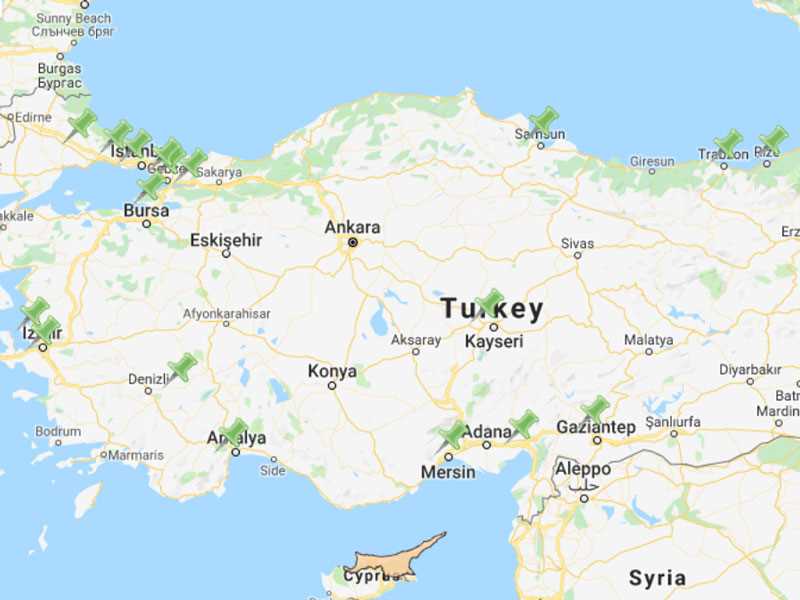Free Zones (FZ) are defined as private sites that are outside the customs area although they are actually within the country's political borders. The free zones (FZ) are designed to help increase the number of export-based investments. Local and administrative legislation that applies to the commercial, financial and economic areas, and which is applied within the customs territory, is either partially or not applied at all in the free zones (FZ).
Turkey has 19 total free zones, located near the European Union and Middle East markets, 18 of which are in operation and one is still under construction. The Free Zones (FZ) are located in strategic locations ensuring easy access to international trade routes through ports bordering the Mediterranean Sea, the Aegean Sea and the Black Sea.
Advantages of the free zones
- Provide exemptions from customs fees and other similar charges of 100%.
- Provide exemptions to manufacturing companies from the corporate tax at 100%.
- Provide 100% value-added tax (VAT) and consumption tax exemptions.
- Provide exemptions from stamp duty on documents in circulation of 100%.
- Provide 100% real estate tax exemptions.
- Provide exemptions from the tax on profits and corporate tax for some logistic services that will be offered in the free zones (FZ), provided that they have a 100% export interface.
- Provide 100% income tax exemptions on employee wages (for companies that export at most 85% of the value of the on-board delivery of goods that they produce in the free zone (FZ)).
- Goods can be kept in the free zone (FZ) for an unlimited period.
- Companies can transfer profits from the free zones (FZ) abroad and also to Turkey without restrictions.
- Exemption from title deed fees upon acquisition and sale of property.
- Exemption from VAT during construction, design, settlement, and approvals and approvals.
- Infrastructure ready and exempt from VAT and other taxes.
- Import permit for used machines.
